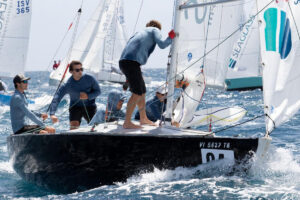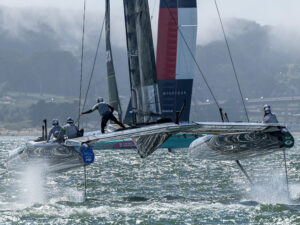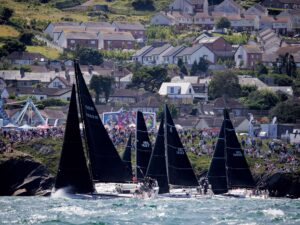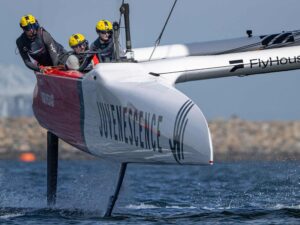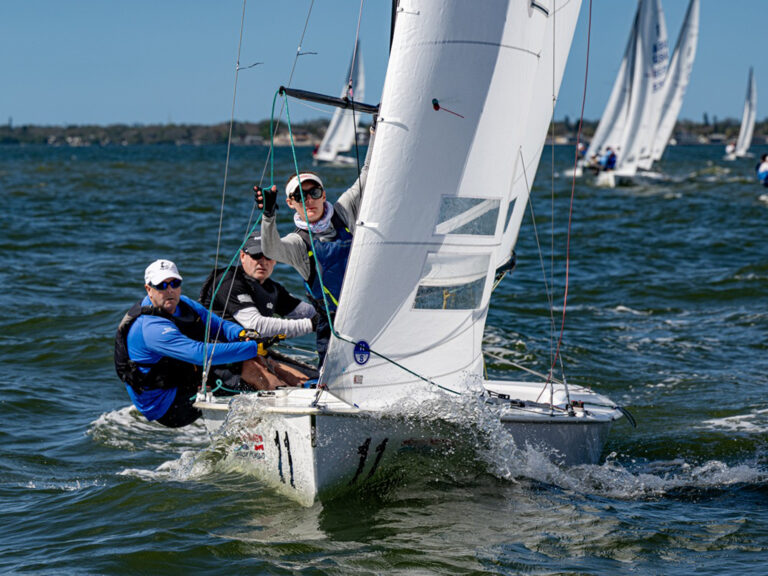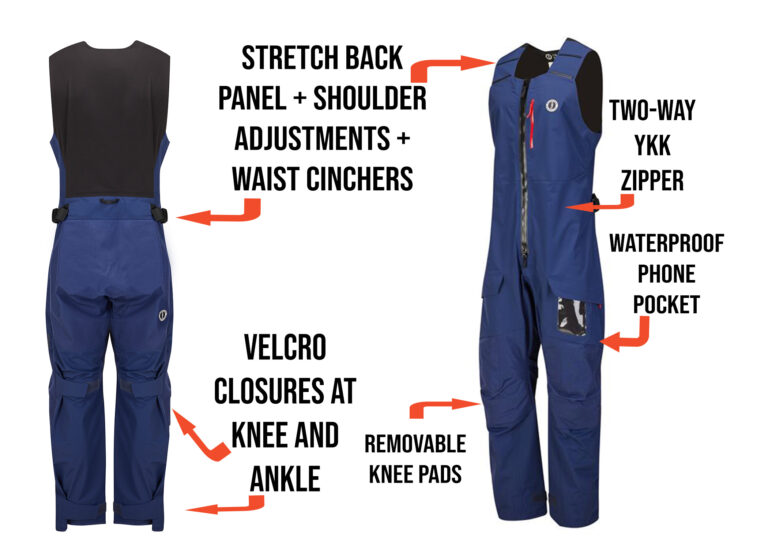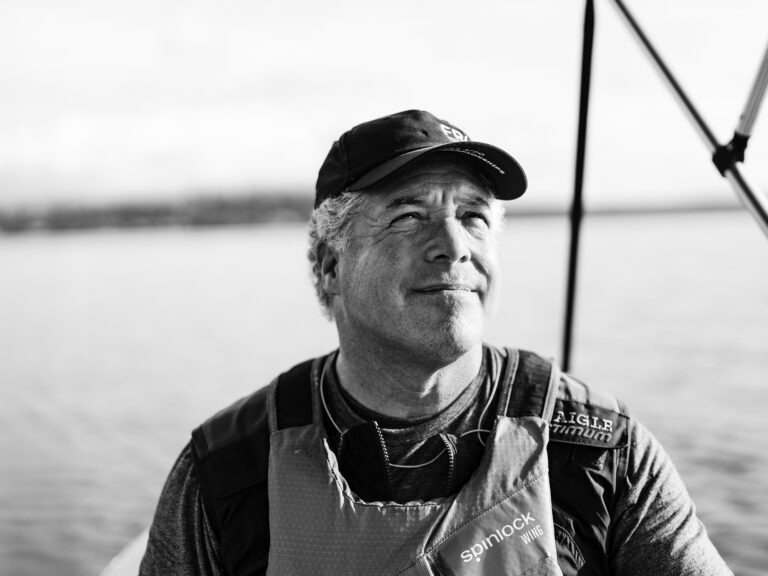In rapid succession, the eight teams competing in this years Volvo Ocean Race have been pummeled, beaten, rewarded, and frustrated. This much was expected before they left the start box in Southampton nine days ago, but many of the sailors are saying they never expected it would go on as long as it has. Only days ago, as they sailed nearly parallel along the Portuguese coast, reports were of broken gear and bodies, of sleep deprivation, and boat-to-boat, open-ocean tactics.
There was pleading for a return to “normalcy.” Today, however, they write of light-air frustration, lead changes, and prayers for more breeze.
Major gear failures thus far have been halyard locks, headboard cars, and sails, and such failures have punted two would-be front runners-Knut Frostad’s Djuice Dragons and Gurra Krantz’s Team SEB-to the back of the fleet. As a result, a potentially deadly gap has opened between the back markers and the lead pack of Team Tyco, Assa Abloy, Amer Sports One, Team News Corp, and illbruck challenge, respectively. The lastest victim over the weekend was Krantz’ SEB, which reported that its mainsail headboard car had failed. Krantz was forced to send his bow crew up the rig in less-than-ideal conditions. According to Krantz, the foredeck team of Tom Braidwood and Scott Bevis returned to deck looking as if they’d been involved in a bar room fight. “Tom Braidwood had the honor of being up the mast that night and, looking at his body now, he could have been in a fight with only body punches. Scott Beavis had the same honor of being in the same bar, but he took the punches on the nose.” It was a harsh batism to V.O. 60 s
SEB was forced to dive southeast, away from stronger winds to the west, in order to reach a small island north of the Canary Islands. There, they intercepted spare parts. The detour not only put them last, but also made them the eastern-most boat. Luck may befall the Swedish skipper, however, as stronger winds in the passage between Gran Canaria and Tenerife, the main islands of the Canarian archipelago have allowed them to maintain the fastest pace in the fleet-8.8 knots. While theyll be sure to reduce their 100-plus-mile deficit, Krantz will need a near miracle to see his team to the front of the fleet.
Meanwhile, skipper Kevin Shoebridge on board Team Tyco, the current leader by only two miles, is anxiously awaiting a quick exit from the high-pressure system that has entrapped the frontrunners. The Bermuda-based Tyco crew is being praised for their smart sailing, persistence, and, as it appears thus far, their ability to steer clear of major gear trouble. As the western boat last week, Tyco finally found the best breeze and stepped into the lead on Friday, only to see it fall into the hands of Mark Rudiger and Roy Heiners Assa Abloy the following day. The difference Saturday morning was only a mile, and six hours later, Tyco sailed back into lead. According to the 1600 GMT position report today, theyve managed to hold on.
Rudiger, waxing poetically in his latest e-mail from onboard, spoke of the heightened state of concentration onboard Assa. “Hold your breath,” he wrote. “Concentrate, step gently, click, click, click, trim very slowly, barely a whisper … the cat and mouse game is very slow but high-strung at the moment. After a week of noisy, wet sailing, five of us are now fighting for boatlengths, mostly within sight of each other. Roy is steering; anticipating every little puff while distance and bearing to the other boats is quietly relayed to him. His mind is crunching thousands of computations per minute trying to figure a way to cover all the angles for the three just behind us, and gain on Tyco just ahead. Magnus watches them like a wise hawk through the binoculars while I read out the distances on the radar.”
Even onboard Ross Field and Jez Fanstones Team News Corp, which had a pasting over the weekend, broaching and exploding their Code 3 headsail, the stress of squeezing every ounce of boatspeed, has allowed them to forget what could have been worse. “Making sure the crew whisper when talking, walk around the boat quietly, man up the rig search for that little vane of air, getting the right sail on, monitoring the radar every minute to plot the progress of the other boats, making sure that we dont make too much fresh water at one time so the boat doesnt get heavy, making sure that the exact wind angles are being sailed. The list goes on and on and all the crew are dying for the moment when you hear the water start moving against the hull and the breeze increases.”
Grant Dalton, skipper of Amer Sports One, admitted in his latest message to shore that he is simply glad to have been able to stay with the leaders. As fleet play the clouds and what little breeze they bring or take away, Dalton expressed concerned that his Frers design, wider at the waterline than his nearest competitors, would be slow. “Just got through a night where there were some wins and losses to be made,” said Dalton this morning. “More by luck than anything else. But the net of it all is that the first five boats are still in sight of each other after eight days at sea. This has been an interesting 12 hours for us as well as we have always worried that selecting such a fat boat, we would heavily suffer in these conditions. So far so good, but we had always seen a real edge to our narrower Farr boat in light air and you see the same thing in Assa, her sistership. Its going to be a long day of light downwind in a fat boat.”
Dalton went on to say that he’d been keeping close tabs on John Kostecki’s illbruck Challenge, silently stalking two miles to leeward. “I have seen most of the sails go up on the other boats now and as expected, illbruck’s looks really nice. They just seem to keep pulling new sails out the hatch and they are a very slick operation to watch.”
At the 16:00 GMT position report illbruck was reporting the quickest pace among the top five-a blistering 7.2 knots to Tyco’s 5.9.

